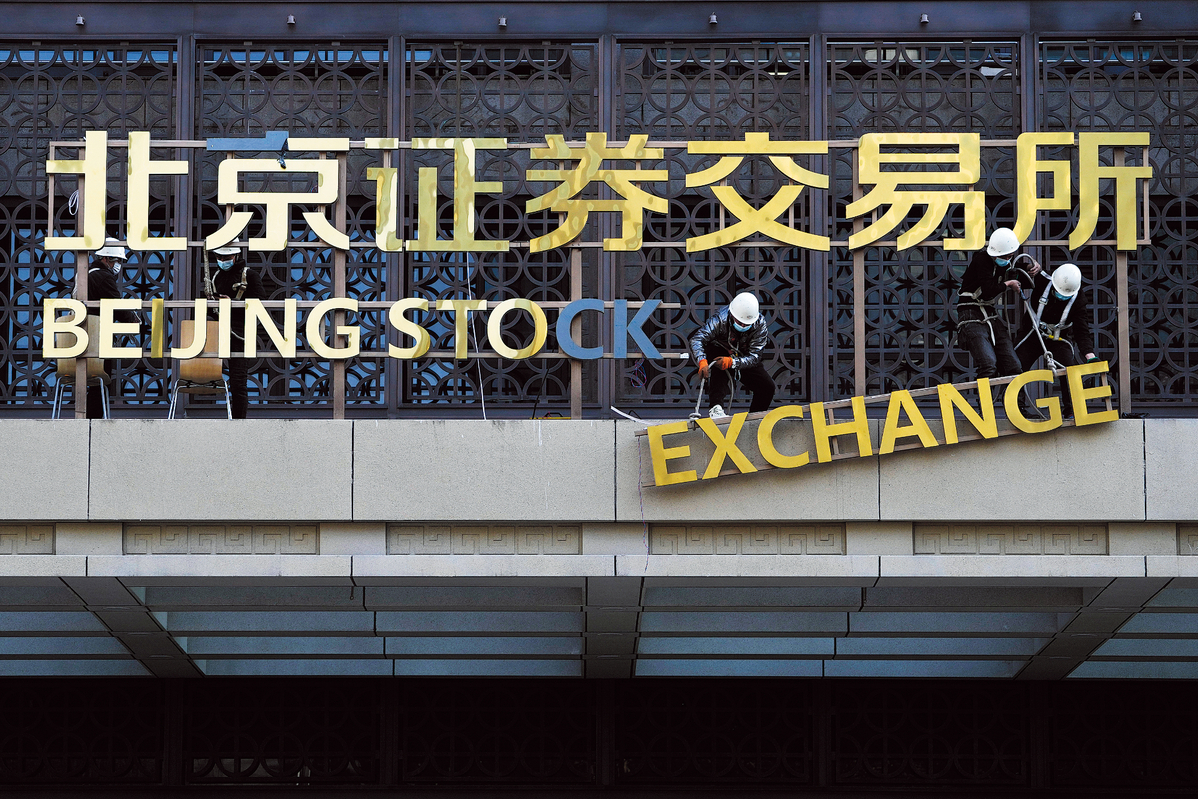New bourse in the market for innovation


Beijing Stock Exchange heralds fresh start for inclusive financial services
Retail investor Chen Yunlei showed up at his broker's office on Nov 12 and was granted permission to trade on the Beijing Stock Exchange on the last trading day before the long-awaited bourse's official opening.
The 49-year-old was one of the initial 2.1 million investors eligible to trade at the BSE, with each of them holding assets worth at least 500,000 yuan ($78,352) in personal securities accounts, as required by the central regulator. Since the bourse launched on Nov 15, the number of qualified individual investors has exceeded 4.3 million.
To further facilitate trading, the State Taxation Administration announced on Nov 14 that individual investors would be exempt from income tax on deals done at the BSE.Investors at the longer-established bourses in Shanghai and Shenzhen, Guangdong province, face income tax of 20 percent.
Despite the tax exemption incentive, Chen is in no hurry, even though public data show the total trading value of the first 81 BSE-listed companies exceeded 21.2 billion yuan in the exchange's first trading week, with these companies' prices rising by 3.75 percent on average.
Even companies with businesses related to the BSE, but listed on other boards of the A-share market, reported an average 9.37 percent rise in their prices for that week.
Chen, a self-proclaimed A-share market veteran with more than 16 years of investment experience, said he is adopting a wait-and-see attitude largely due to his lack of research into BSE-listed companies.
"I understand the BSE has been launched to support the development of smaller technology companies, but I need more time to understand where these companies' expertise lies and the prospects for their respective industries," he said.
Ethan Wang, head of wealth management investment strategy at Standard Chartered China, applauded Chen's cautious approach. Although there are now only 81 companies trading on the BSE, compared with some 4,000 listed on the main board of the A-share market, Wang said it is extremely difficult for individual investors to understand even 10 percent of the companies' business.
"The companies' technologies have not matured. It requires a lot of extensive background knowledge to assess if the technology will become an industry mainstream, or to estimate the potential market size of a product that is being planned," he said.
While the knowledge-intensive BSE may not be the ideal target for retail investors acting on their own, the bourse is important for the many small and medium-sized innovative companies, or SMEs, focusing on research and development, or R & D, of pioneering technologies. This is also one of the main reasons the exchange was launched by central regulators.
Built upon the NEEQ Select, the highest tier of the 8-year-old National Equities Exchange and Quotations system, the BSE started trading only 74 days after its inception.
Addressing the opening ceremony, Yi Huiman, chairman of the China Securities Regulatory Commission, or CSRC, said the Beijing exchange should become "a main territory "serving innovative SMEs, signaling a new start for China's inclusive financial services. BSE chairman Xu Ming also vowed at the ceremony to make the exchange more accessible to SMEs and test more trading products and tools to facilitate financing for such enterprises.
























